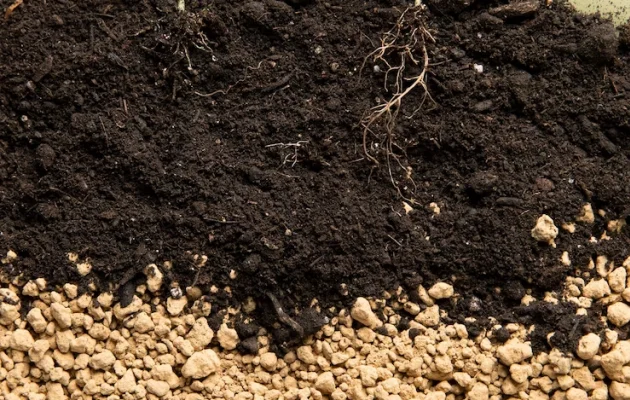Potassium humate is a type of humic acid derived from natural organic materials, such as lignite coal or peat.
Here are some key points about potassium humate:
- Source and Production:Potassium humate is derived from the oxidation of organic materials, primarily lignite coal or peat. These materials undergo a series of extraction and purification processes to obtain potassium humate.
- Composition and Properties:Potassium humate is a complex mixture of humic acid, fulvic acid, and other organic substances. It is rich in organic matter, humic substances, and trace minerals. It is typically available in powdered or granular form.
- Agricultural ApplicationsPotassium humate is widely used in agriculture as a soil conditioner and plant growth promoter. It offers several benefits for plant health and soil fertility, including
Applications
Potassium Humate is used in a wide range of food and beverage products, including:
- Nutrient Retention: Potassium humate has a high cation exchange capacity (CEC), which enables it to attract and hold nutrients in the soil, making them more available for plant uptake. It helps prevent nutrient leaching and improves nutrient efficiency
- Soil Structure Improvement: It enhances soil structure by promoting the formation of stable aggregates, increasing soil porosity, and improving water infiltration and drainage. This leads to better root development and aeration
- Water Retention:Potassium humate can improve the water-holding capacity of soils, reducing water stress on plants and helping them withstand drought conditions
- Chelating Properties: It forms complexes with certain nutrients, such as iron, zinc, and manganese, making them more accessible to plants. This enhances nutrient uptake and improves overall plant health
- Stimulates Plant Growth: Potassium humate has been shown to stimulate root growth, increase seed germination rates, and enhance plant vigor and productivity
- Environmental Benefits: The use of potassium humate in agriculture can contribute to sustainable farming practices by reducing the need for synthetic fertilizers and minimizing environmental impacts, such as nutrient runoff and soil erosion
- Compatibility: Potassium humate is compatible with various soil types and can be used in conjunction with other fertilizers and soil amendments. It is suitable for use in conventional farming, organic farming, and horticulture
- Application Methods: Potassium humate can be applied to the soil through fertigation (via irrigation systems), as a soil amendment during land preparation, or as a foliar spray to provide direct nutrient uptake through plant leaves
- Regulatory Considerations: The use of potassium humate in agriculture may be subject to specific regulations and guidelines in different countries or regions. It's important to consult local agricultural authorities or experts for proper usage recommendations and compliance
Overall, potassium humate is valued for its ability to improve soil fertility, nutrient availability, and plant growth. Its application in agriculture supports sustainable farming practices and contributes to healthier and more productive crops




